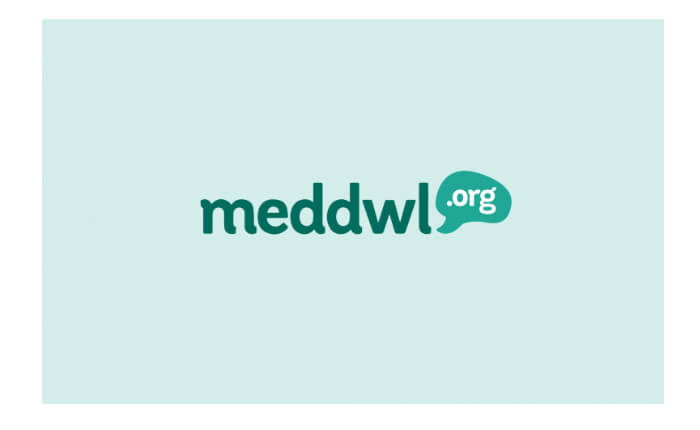Types of Obsessive Compulsive Disorder (OCD)
Provided by

Relationship OCD
Relationship OCD is a type of OCD. People living with the condition often question their relationship and are concerned about whether they are with the right person. Having doubts and worries about your relationship is perfectly natural. Everyone experiences that to some degree. However, for those with this type of OCD, the thoughts can be irrational, unfounded and detrimental to their daily lives.
Harm OCD
Harm OCD is a common type of OCD. People living with this condition are constantly worried about causing harm to others. These thoughts are so common, that 85% of the population living with OCD say they have experienced violent, unpleasant thoughts, including thoughts of injuring themselves or their family or friends. However, such thoughts for someone with this condition are far more disturbing than occasional, violent pictures and thoughts. They are repetitive, graphic and can hinder you from carrying out simple daily tasks.
These OCD Harm obsessions are common in people living with Harmful OCD:
• Fear of harming yourself, your partner or a stranger.
• Fear of losing consciousness and harming someone.
• Fear of accidental poisoning.
Sexual Orientation OCD
Sexual Orientation OCD is a type of OCD. Those who live with this type of OCD can be obsessed with their sexuality. They may question themselves intensely to find out their sexual orientation or sexual orientation. This constant questioning can cause great confusion and anxiety.
Contamination OCD
A well-known form of OCD is Contamination OCD, where someone is afraid of getting infected or getting sick. It is the most common form of OCD in the United Kingdom and 25% of people with OCD worldwide live with this type of OCD.
The most common obsession with OCD Contamination is the fear of a terminal illness such as AIDS or cancer. Daily routine tasks, such as touching a door handle or poles on public transport or sharing a glass of water can cause intense anxiety.
Somatic OCD
Somatic OCD is a less common type, which involves neutral obsessions. Neutral obsessions are concerned with thinking of images that have no negative or dangerous effect. For example, neutral obsessions are not harmful obsessions, as anxiety is not associated with a dangerous act. Thus, somatic OCD obsessions relate to awareness of various forms of physical activity, such as swallowing, breathing and blinking. You can also be very aware of background noise such as hearing someone else chewing food.
Suicidal OCD
It is perfectly natural for people to think about suicide. However, suicidal thoughts will become obsessed with those living with this type of OCD. You can be so worried about suicide that you feel unsafe when you are alone. You may be worried about realizing the pictures in your head at any time. This can be extremely difficult, but it is important to remember that you are not more likely to realize your thoughts than anyone else.
Religious OCD
Religious OCD, also known as Srupulosity, is a condition dating back to the Catholic Church in the 1600s. It had been noticed that some monks are exhorting to pray excessively, and that they were trying to attain an unrealistic state of holiness. People living with this type of OCD often try to do the right thing constantly, religiously and morally.
Existential OCD
People living with existential OCD worry about philosophical aspects of life. They may be obsessed with questions such as What does life mean? Why are we here? Your mind poses these abstract questions and tells you that you must solve them.
It's normal to be curious about what life means. However, people with OCD will be obsessed with these questions to such an extent that they interfere with their daily lives.
Metaphysical Contamination OCD
Metaphysical Contamination OCD is a rare type. Often, the person will have a history of trauma or abuse. What relates to that history will be "contaminated" by the experience and cause great anxiety.
It is normal for trauma survivors to respond intensely to certain themes, situations, and people. However, those living with Metaphysical Contamination OCD will have an obsessive fear of inanimate objects associated with past experiences believing that those things can infect them with negative signs or false positives.
Pure OCD and Intrusive Thoughts
Pure OCD is a type of OCD, also known as Pure O. Instead of dealing with intrusive thoughts by performing explicit rituals such as hand washing or counting, people collect repetitive thoughts due to stress. Due to the hidden nature of the disorder, Pure OCD can be difficult to treat. Many people with the condition live for years without seeking help.
The symptoms of Pure OCD vary greatly from person to person. However, some of the most common thoughts are around sexuality, responsibility, violence, faith, health and romance.
How do I know it's OCD, and is it possible for me to get better?
Intrusive thoughts come in for everyone, but they don't mean you have OCD. For people living with the condition, these thoughts can cause enormous stress and anxiety for the individual.
People can heal by taking a type of therapy called Exposure Response Prevention, where you are repeatedly confronted with your fears, without using any rituals. By repeating this, you force your mind to see things differently. Of course, this varies depending on the type of OCD you have, and Cognitive Behaviour Therapy (CBT) and medication can also help.
The intrusive and obsessive thoughts of some may not end completely. Instead of getting rid of it altogether, improving OCD means controlling it. This does not mean that you cannot live happily and healthily. By seeking treatment and adopting positive lifestyle habits, you can build confidence and a sense of freedom. Even if some anxiety persists, the condition will never be the same for you forever.


